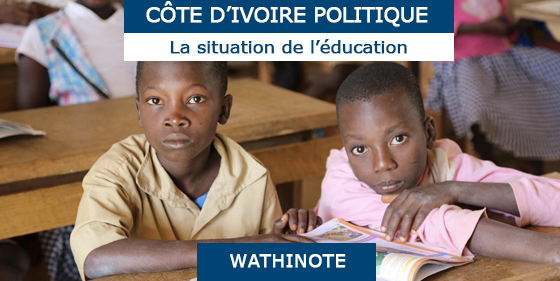Author : Rassidy Oyeniran
Affiliated Organisation : Beijing Normal University, Beijing, PR China
Publication Type : Analytical Report
Date of publication : 2018
Link for the original document
*Wathinotes are excerpts from publications chosen by WATHI and conform to the original documents. The reports used for the development of the Wathinotes are selected by WATHI based on their relevance to the country context. All Wathinotes refer to original and integral publications that are not hosted by the WATHI website, and are intended to promote the reading of these documents, which are the result of the research work of academics and experts.
This study used qualitative method to critically examine the recorded data by conducting document analysis. We need to compare notes to see what is workable in Africa context and see how the adopted policies can be implemented to the benefit of the concerned citizen. Since the end of the 1990s, the country has gone through a long period of socio-political unrest and repeated conflicts. Côte d’Ivoire remains the largest economy of the West African Economic and Monetary Union (UEMOA) with 40% of its GDP.
Since the new authorities took office in April 2011, the country has gradually returned to stability, national unity and the redeployment of the State and its services to the population; and with real prospects for economic recovery. However, the long period of economic and social instability has strongly affected education, which is still searching for its mark in the muddle between the deep global crisis and the aftermath of social conflict and the emerging country vision launched in 2011 by the President of the State, Alassane OUATTARA.
The underprivileged and poor marginalized people who become products of free public education remain at the lower levels of the society
Shortage of funding and the financial limitation cause troubles to Ivorian people. However, other miscellaneous fees needed to survive the education in the country are not being paid for. This includes books, school uniforms, meals, transportation subsidies and others, which the poorest of the poor in the society cannot afford. Besides, free public education continually receives a smaller portion of the national budget, which cannot sustain all the financial obligations and spending to keep the program running effectively.
The reputation of public schooling has begun to deteriorate and resulted to highly qualified teachers moving to private educational institutions with better facilities and higher student learning outcomes. The underprivileged and poor marginalized people who become products of free public education remain at the lower levels of the society. Children from low-income families or unfortunate backgrounds are also not minded.
The willingness of public authorities to improve the educational system has been accompanied by the growth of private schools. These have proliferated in urban areas The 1992 convention stipulates the standards, regulations and responsibilities of private institutions. On average, the private sector has performed better than the public sector in terms of academic success.
In the case of Côte d’Ivoire, the expected SLE given these two context variables is 7.61 years, for an observed value of 7.68 (ibid). The proximity between these values means that these external constraints in the education system do not infer the relative weakness of schooling in Côte d’Ivoire. SLE [School Life Expectancy] (adjusted by the repetition rate) averaged 7.7 years on average all levels of education, while it was 9.7 years in Africa and 12 years in middle-income countries (Morisset & Ndem, 2017).
During the tough moment of the crisis, the education sector recorded:
- about one million out-of-school children,
- 800,000 students who lost between four to six months of schooling,
- thousands of schoolchildren; teachers who, for security reasons, have migrated inside or outside the country;
- significant deterioration of its movable and immovable assets. (UNICEF, 2017).
Girls remain at a disadvantage, although major progress has been reported in recent years, particularly in terms of enrolment at primary and lower secondary levels. The new compulsory policy for which the State has invested 700 billion CFA francs (1.07 billion euros) is supposed to end school fees. According to Samoff and Bidemi (2007), has to do with, in public policy, with nondiscrimination while equity generally requires equal treatment, and in some circumstances achieving equity may require differentiation.
The number of students entering secondary education remains low, discrimination against girls remains persistent, classrooms are not always well equipped, teachers are sometimes poorly trained, and the school curriculum is not adapted to the needs of the labour market. The effects of war and conflict (trauma, depression, isolation, abandon and so forth) have had a serious impact on the planning of schooling in Côte d’Ivoire. Cultural practices such as early marriages, house chores for girls, retention of kids at home by their parents, which prevent children from attaining education.


Commenter